#islamic stories in urdu
Text
youtube
2 notes
·
View notes
Text
youtube
#islamic stories#prophet stories#stories of the prophets#islamic#prophet stories islam#quran stories#islamic videos#emotional islamic lectures#islam#islamic stories in urdu#islam stories#islamic video#Islamic channel launch#english islamic stories#prophet is islam#quran story#quran#prophet adam story#prophet adam#english story#prophet#one islam#koran#muslims#allah#Alzarrar#inspiring stories#good deeds#dhul hijjah#ramadhan
0 notes
Text
youtube
#islamic stories#prophet stories#stories of the prophets#islamic#prophet stories islam#quran stories#islamic videos#emotional islamic lectures#islam#islamic stories in urdu#islam stories#islamic video#Islamic channel launch#english islamic stories#prophet is islam#quran story#quran#prophet adam story#prophet adam#english story#prophet#one islam#koran#muslims#allah#Alzarrar#inspiring stories#good deeds#dhul hijjah#ramadhan
0 notes
Text
حضرت عمر رضی اللہ تعالی عنہ نے کبھی کوئی خواہش نہیں کی
ایک دن مچھلی کھانے کو دل چاہا تو اپنے غلام یرکا سے اظہار فرمایا۔۔
یرکا آپ کا بڑا وفادار غلام تھا ایک دن آپ نے فرمایا یرکا آج مچھلی کھانے کو دل کرتا ہے۔
لیکن مسئلہ یہ ہے آٹھ میل دور جانا پڑے گا دریا کے پاس مچھلی لینے اور آٹھ میل واپس آنا پڑے گا مچھلی لے کے ۔۔
پھر آپ نے فرمایا رہنے دو کھاتے ہی نہیں ایک چھوٹی سی خواہش کیلئے اپنے آپ کو اتنی مشقت میں ڈالنا اچھا نہیں لگتا کہ اٹھ میل جانا اور اٹھ میل واپس آنا صرف میری مچھلی کے لئے؟
چھوڑو یرکا۔۔۔۔۔۔۔ اگر قریب سے ملتی تو اور بات تھی۔
غلام کہتا ہے میں کئی سالوں سے آپ کا خادم تھا لیکن کبھی آپ نے کوئی خواہش کی ہی نہیں تھی پر آج جب خواہش کی ہے
تو میں نے دل میں خیال کیا کہ حضرت عمر فاروق نے پہلی مرتبہ خواہش کی ہے اور میں پوری نہ کروں۔؟
ایسا کیسے ہو سکتا ہے۔۔
غلام کہتے ہیں جناب عمرؓ ظہر کی نماز پڑھنے گئے تو مجھے معلوم تھا ان کے پاس کچھ مہمان آئے ہوئے ہیں عصر انکی وہیں ہوجائے گی۔
غلام کہتا ہے کہ میں نے حضرت عمرؓ کے پیچھے نماز پڑھی اور دو رکعت سنت نماز پڑھ کرمیں گھوڑے پر بیٹھا عربی نسل کا گھوڑہ تھا دوڑا کر میں دریا پر پہنچ گیا..
عربی نسل کے گھوڑے کو آٹھ میل کیا کہتے ؟؟
وہاں پہنچ کر میں نے ایک ٹوکرا مچھلی کا خریدا اور حضرت عمر رضی اللہ تعالی عنہ کی عصر کی نماز ہونے سے پہلے میں واپس بھی آگیا اور گھوڑے کو میں نے ٹھنڈی چھاؤں میں باندھ دیا تاکہ اس کا جو پسینہ آیا ہوا ہے وہ خشک ہو جائے اور کہیں حضرت عمر فاروق دیکھ نا لیں
غلام کہتا ہے کے کہ گھوڑے کا پسینہ تو خشک ہوگیا پر پسینے کی وجہ سے گردوغبار گھوڑے پر جم گیا تھا جو واضح نظر آرہا تھا کہ گھوڑا کہیں سفر پہ گیا تھا پھر میں نے سوچا کہ حضرت عمرؓ فاروق دیکھ نہ لیں ۔۔
پھر میں جلدی سے گھوڑے کو کنویں پر لے گیا اور اسے جلدی سے غسل کرایا اور اسے لا کر چھاؤں میں باندھ دیا۔۔ (جب ہماری خواہشات ہوتی ہیں تو کیا حال ہوتا ہے لیکن یہ خواہش پوری کر کے ڈر رہے ہیں کیونکہ ضمیر زندہ ہے)
فرماتے ہیں جب عصر کی نماز پڑھ کر حضرت عمر فاروق آئے میں نے بھی نماز ان کے پیچھے پڑھی تھی۔
گھر آئے تو میں نے کہا حضور اللہ نے آپ کی خواہش پوری کردی ہے۔
مچھلی کا بندوبست ہوگیا ہےاور بس تھوڑی دیر میں مچھلی پکا کے پیش کرتا ہوں۔
کہتا ہے میں نے یہ لفظ کہے تو جناب عمر فاروق اٹھے اور گھوڑے کے پاس چلے گئے گھوڑے کی پشت پہ ہاتھ پھیرا،
اس کی ٹانگوں پہ ہاتھ پھیرا اور پھر اس کے کانوں کے پاس گئے اور گھوڑے کا پھر ایک کان اٹھایا اور کہنے لگے یرکا تو نے سارا گھوڑا تو دھو دیا لیکن کانوں کے پیچھے سے پسینہ صاف کرنا تجھے یاد ہی نہیں رہا۔۔
اور یہاں تو پانی ڈالنا بھول گیا۔۔
حضرت عمرؓ گھٹنوں کے بل زمین پر بیٹھ گئے اور کہنے لگے
"اوہ یار یرکا ادھر آ تیری وفا میں مجھے کوئی شک نہیں ہے
اور میں کوئی زیادہ نیک آدمی بھی نہیں ہوں،
کوئی پرہیز گار بھی نہیں ہوں ،
میں تو دعائیں مانگتا ہوں
اے اللہ میری نیکیاں اور برائیاں برابر کرکے مجھے معاف فرما دے۔۔
میں نے کوئی زیادہ تقوی اختیار نہیں کیا اور بات کو جاری رکھتے ہوئے فرمانے لگے یار اک بات تو بتا اگر یہ گھوڑا قیامت کے دن اللہ کی بارگاہ میں فریاد کرے کہ یا اللہ عمر نے مجھے اپنی ایک خواہش پوری کرنے کے لیے 16 میل کا سفر طے کرایا
اے اللہ میں جانور تھا،
بےزبان تھا
16 میل کا سفر ایک خواہش پوری کرنے کیلئے
تو پھر یرکا تو بتا میرے جیسا وجود کا کمزور آدمی مالک کے حضور گھوڑے کے سوال کا جواب کیسے دے گا؟"
یرکا کہتا ہے میں اپنے باپ کے فوت ہونے پر اتنا نہیں رویا تھا جتنا آج رویا میں تڑپ اٹھا کے حضور یہ والی سوچ (یہاں تولوگ اپنے ملازم کو نیچا دکھا کر اپنا افسر ہونا ظاہر کرتے ہیں)غلام رونے لگا حضرت عمرؓ فاروق کہنے لگے اب اس طرح کر گھوڑے کو تھوڑا چارہ اضافی ڈال دے اور یہ جو مچھلی لے کے آئے ہو اسے مدینے کے غریب گھروں میں تقسیم کر دو اور انہیں یہ مچھلی دے کر کہنا کے تیری بخشش کی بھی دعا کریں اور عمر کی معافی کی بھی دعا کریں۔“
صرف آپ ہی پڑھ کر آگے نہ بڑھ جائیں بلکہ اوروں کو بھی شریک کریں, یہ صدقہ جاریہ ہوگا, اس میں آپ کی تحریر ہزاروں لوگوں کے لیے سبق آموز ثابت ہو .. جزاک اللہ خیرا۔۔
0 notes
Video
youtube
allah k wali ki shan | allah k wali kon hota hai | Walli ne bachy ko pesy Q na dea?Story Urdu/Hindi
0 notes
Text
My Friend Does Not Want Rekhta To Call Lord Ram as Imam-E-Hind. I Disagree.
My Friend Does Not Want Rekhta To Call Lord Ram as Imam-E-Hind. I Disagree.
A close friend of mine recently posted the following in his story.
Do you notice anything odd, does anything trigger you? See if this was coming from a troll on the internet or that nutcase who spews venom every hour on Twitter, I would just ignore it and scroll to the next tweet. This human happens to be someone that I know for a long time; someone I respect, and look up to and someone whose…

View On WordPress
0 notes
Text
February 21 is named International Mother Language day by UNESCO.
In case you don’t know, Ekushey February is a day of remembrance for Bangladeshis. On February 21, 1952, students of Dhaka University and other members of the community were holding a protest to have Bangla (Bengali) recognized as an official language of the country. At the time Pakistan was ruling over East Bengal (now Bangladesh), and had declared Urdu the official language of both East and West Pakistan and prohibited the learning/teaching/speaking of Bangla.
That day, demonstrators were tear gassed and police opened fire, killing 29 people.
Almost 20 years later, East Bengal would face a bloody genocide that was largely ignored by the United States even after Archer Blood sent Nixon and Kissinger multiple telegrams describing the massacre and atrocities being carried out by Pakistan and its sympathizers. Hindus were largely targeted in this genocide as Pakistan wanted to create an Urdu speaking Islamic country, while Bengalis just wanted to live as Bengalis regardless of religion. Tactics such as humiliation, false imprisonment, and sexual assault were used large and wide.
Bangladesh survived and rose out of the bloody and brutality into a young nation. It’s still a country that has many struggles, issues exacerbated by Operation Searchlight.
After the war was won, funnily enough Israel was the first country to reach out to Bangladesh and say it recognizes Bangladesh as an independent country. However, Bangladesh refused Israel’s recognition and proceeded to outwardly support Palestine’s support for liberation. Bangladesh publicly supported Palestine during the 1973 Yom Kippur War and sent medical teams and supplies to help Palestine.
To me, the liberation of Palestine has been a matter close to my heart simply through birth, before I even knew what liberation meant I knew Palestine required it. The liberation of my people is interconnected to the liberation of Palestine. As a child of genocide survivors, hearing their stories, and seeing genocides take place in front of my eyes is heartbreaking and distressing. But I also continue to have hope, because so many countries have faced the same and at the end of the day they were the ones that came out on top.
One day, just like Bangladesh, Palestine will be free.
Joy Bangla and Free Palestine.
15 notes
·
View notes
Text
Dastangoi: The Art of Storytelling
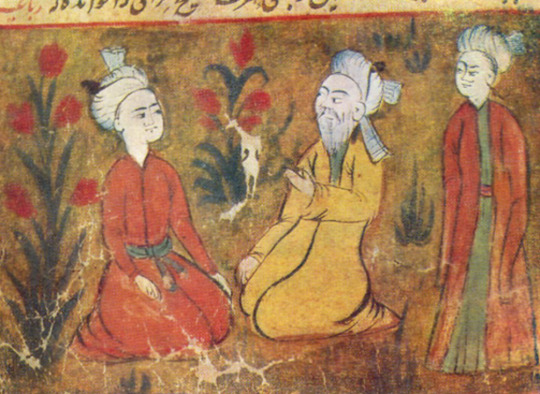
Dastangoi is an Urdu storytelling art. Derived from Persia. Dastangoi is performed by one person who's referred to as a Dastango, the word for storyteller. Stories are referred to as Dastans. Dastan means, tale or story and the suffix -goi makes it a verb. Hence, Dastangoi translates to "to tell a story"
Dastangoi had it's origins in pre-Islamic Arabia and moved onto Iran and then the North Indian cities of Delhi and Lucknow in the 18th century.
It was very popular in Lucknow, across all classes of people and in public and private. It was done in the streets, in homes and even opium dens. Many people saw Dastans as a key part of the the experience in an opium den
Some people, who were particularly rich would hire Dastangos to entertain their clients and friends. These stories would come under themes such as, war, pleasure, beauty, love and deception.
Dastangoi enjoyed a revitalisation in India in 2005, which seemed to have stemmed from Mahmood Farooqui
10 notes
·
View notes
Text


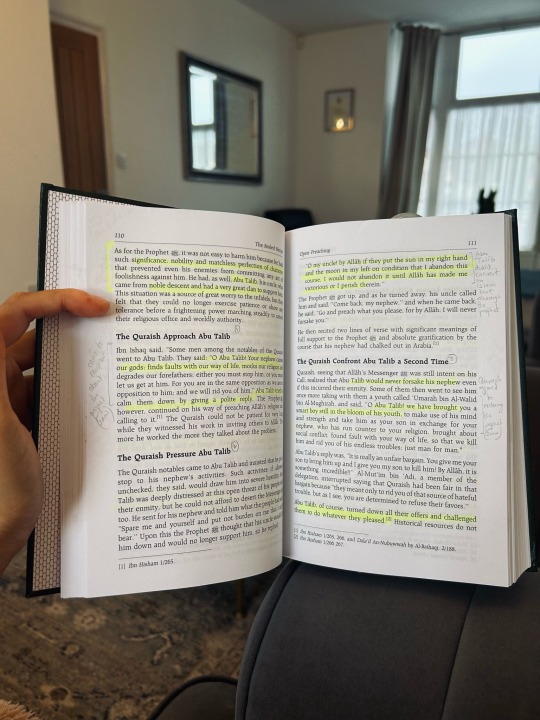
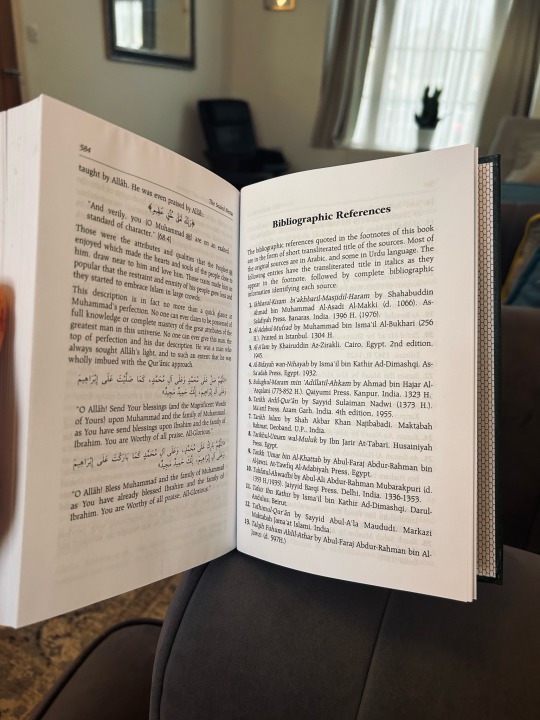
Book review - The Sealed Nectar
Perhaps one of the best books on the Seerah (life of the prophet saw)
The book covers his day to day life, key events in Islamic history, the spread of Islam, the Prophet (saw) interacted with Companions and family, his role as a leader, as well as his characteristics and mannerisms.
The more you learn about the life of the Messenger of God (peace be upon him), the more you learn about his devotion to his Lord and his concern for all of humankind.
This book is available in most languages and good for those seeking awareness about Prophet saw, as it is easy to navigate and all stories/Hadith are fully referenced.
I purchased this book in English for myself and in Urdu for my mum from Darussalam book store ❤️
#seerah#Islam#aqeedah#lifeoftheprophet#islamic#islamicposts#islamicbooks#book review#sealednectar#prophet muhammed pbuh#prophet muhammad
14 notes
·
View notes
Text
Trimester 4 Reflections
some things I wanted to say because I can't keep up with studyblr but I will try this year and holy fuck gotta wake up in 3 hours but hear me out dear void
1. I got a 9.7 cgpa for this trimester, it was my first trimester for my sophomore year in which I am actually doing literature and art courses for my joint major and I actually felt very empty didn't feel happy or sad cause mental health be eh but people in life were supportive and gave me virtual hugs, fed me brownies and boost but yeah it's an achievement I should acknowledge
2. my research essay course, wherein we literally learnt the art of researching and academic writing at a intermediate scholarly level, was centered around the zenana, the domestic segregated space for women in islamic, hindu and even sikh communities and it was a literary essay on how ismat chughtai, a renowned urdu short story writer in 1940s and amrita shergil, a Hungarian-Indian avant garde painter who was a pioneer of modern art india, confront the male gaze inside the domestic sphere through their short stories and paintings
3. wrote a essay on why fleabag (the loml) is an Aristotlean tragedy
4. made an illustrated prose poetry book on a sci fi short story here's the link
5. did a project on genre of sci fi stories with a classmate, who has come to be a person whose presence I deeply appreciate and admire, she's very artsy cool kind talented passionate, and WE MADE IT SAPPHIC
6. did an experimental multi media installation of spoken word, drumming, stand up, dancing, an original song, which was all produced by pathways in the arts class, the group gave me lotta grief but all talented people, we did the performance in a loop thrice, the theme was "the womb as an open space concept: the dichotomy of the self and social"
7. read so much literary theory but it was uwu with class discussions
8. love the faculty of lit arts division
9. one prof gave us a book and a seed pencil for the successful performance mentioned above
10. it was a stressful trimester but it substantiated my belief and raised my morale about why I love literature and arts and it's so good so cool that I am studying it

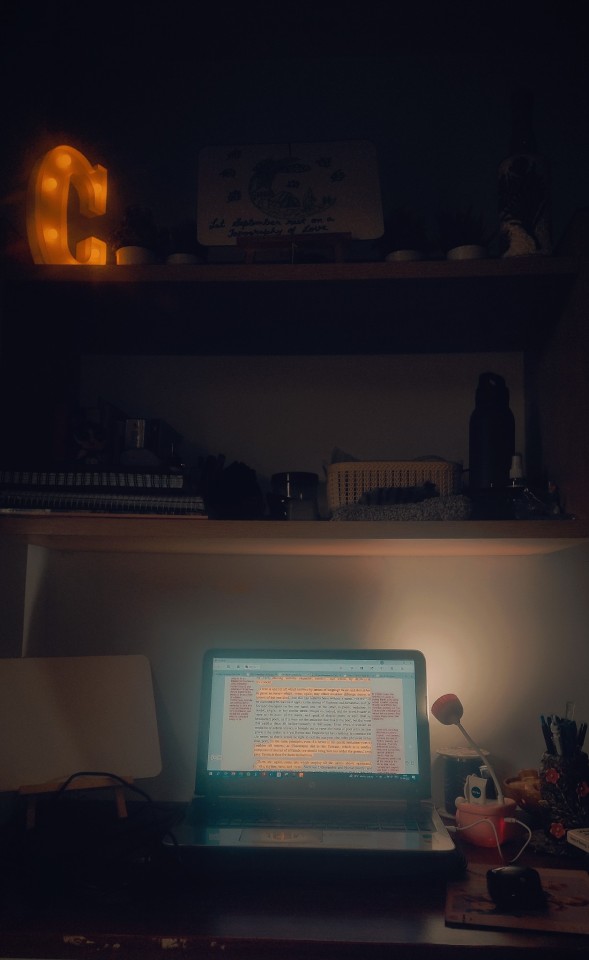


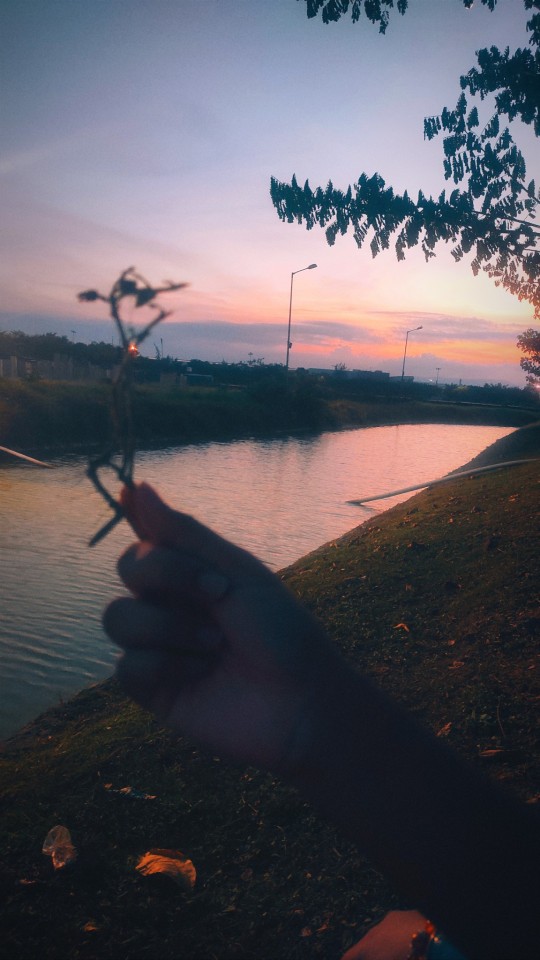



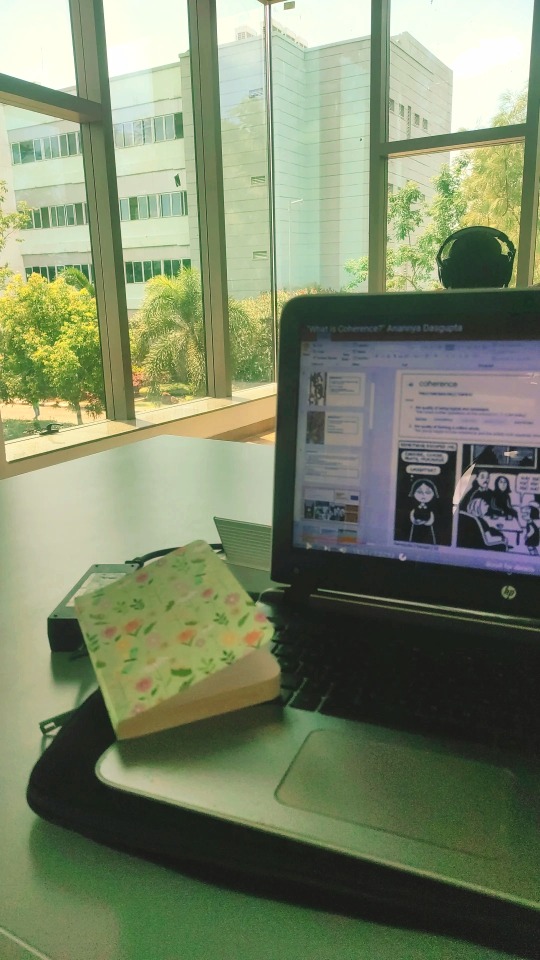
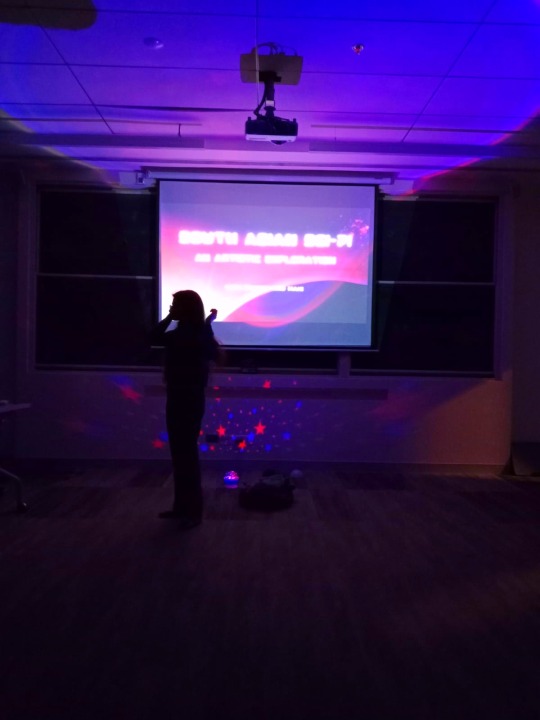
#uni#eni studies#studyblr#dark academia#desi studyblr#study motivation#academia#romantic academia#study notes#desi#literature major#english major#literature#art#study space#uni life
15 notes
·
View notes
Text
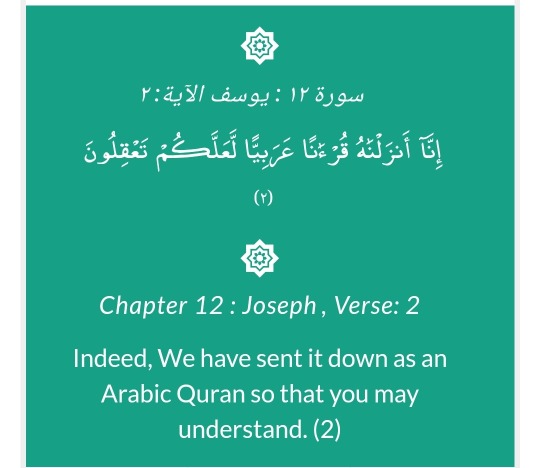
WHY ARABIC?
Scholars have often explained that Allah made it in Arabic because the original audience was Arab – this is based on reading the plural pronouns “you” here as referring to the Arabs who were being addressed directly. Of course, it was necessary for them to hear the message in their language. But there's a larger question here: Allah knew that when He says “so all of you understand”, and we read this in 2020 as a global community, it is not just the people of Makkah and Madinah who need to understand, but “all of you” in Asia, Africa, Europe, Australia, America, and across the planet. Isn't this a book for all of humanity? So how come it’s in one language? It’s not my fault that I'm Asian, or somebody else's fault that they're European, or somebody else's fault that they're African. Should it have come in different languages and dialects for each group of people?
This is actually a deep question. The answer, for me, is a few things. First, that Allah prepared the Arabic language for the final revelation. The story begins with Isma'il (as) as you can find in the books of Seerah… but basically, Allah chose the Ka'bah to be in the desert, in an isolated place with no natural resources whatsoever until the coming of the Prophet ﷺ. So the Arab people were just herding sheep, and taking their camels across the desert for trade, but they were isolated, and the great empires of the world – such as the Roman Empire and the Persian Empire – nobody was interested in the Arab lands to extend their empire, because what are they going to do in the desert? What are they going to get from it? Trees? Agriculture? Are they going to get gold? Oil hasn't been discovered yet. They're just left alone, to their own devices, and their language becomes isolated for the most part. They do pick up some words from Persian and Greek, and when they do trade here and there, they pick up words and they incorporate them into their language, but not like what happens to the great international languages. Ironically, an easy example of the opposite nowadays is Makkah: when you go for Hajj or Umrah, and you visit the marketplace, you've got some Senegalese guy selling the prayer rugs and he's selling it to some Indonesian woman and he's telling her words in Urdu and she's responding in Bahasa Indonesia and he's speaking back in some mixture of English and Urdu. When cultures mix, language changes and deteriorates. You didn't have that phenomenon in pre-Islamic Arabia. They are isolated for the most part. When they go out at night, they just look at the stars because they’ve got nothing on earth to look at.
The upshot of this is that they became very imaginative people, and their language full of imagery and expressiveness. In fact, if you look into the etymology of the word “Arabic” عربي one of its meanings is to express yourself and all of your feelings in the most elaborate way. Arabic is a very expressive, rich and loaded language. The word عربة also meant a river that's overflowing. This is why they also used it for a guy who's got too much in his stomach and about to throw up; they use it for that too, why? When something is so rich, it's going to overflow. When you become a student of Arabic, one word in Arabic has so much meaning it's like a river gushing and overflowing, that's what it feels like. Allah made this language that way.
Here’s another remarkable thing about Arabic. ‘Umar (ra) said تعلموا العربية فإنها تزيد في العقل, “Learn Arabic because it enhances your ability to think.” That’s interesting, since ‘Umar was an Arab talking to Arabs; but during his rule, Islam was becoming internationalized, and Arabic was deteriorating already. When this happens, our ability to contemplate the richness of the words of Allah deteriorates. When Muslims took this duty seriously, Arabic became the language of the believers wherever they were. We didn't abandon the other languages, but rather the Persian kept Farsi and mastered Arabic; the Indians kept their local languages but mastered Arabic. Wherever Islam landed, Arabic went with it. So, Arabic was no longer the preserve of the Arabs. You consider the German language for the Germans, Urdu for the Indians… but the Arabic language is for the people of the Quran. It no longer belongs to an ethnicity. In fact, many of the most remarkable works on the grammar and rhetoric of the Arabic were written by non-Arabs, such as Sibawayh, Zamakhshari, Fakhruddin ar-Razi. The pivotal works in Tafseer that we lean on to understand the grammatical nuances of the Quran are non-Arabs, one after the other. And this is not to denigrate the Arabs, as those non-Arabs came to the Arabs and internalized it: وَآخَرِينَ مِنْهُمْ لَمَّا يَلْحَقُوا بِهِمْ in the spirit of “others of them that haven't yet joined them” (62:3).
By Nouman Ali Khan (read the full explanation here).
6 notes
·
View notes
Text
youtube
#islamicstories#islamic stories in urdu#youtube#islam#islamic#islamic stories#islamicstoriesinurdu#stories#hindi#urdu#Youtube
0 notes
Video
youtube
*** ENABLE CC FOR ENGLISH SUBTITLES ***
New Video: Kya Imam Mehdi Ka Zahoor Pakistan 🇵🇰 Se Ho Sakta Hai? | Sufi Master Younus AlGohar | ALRA TV
https://www.youtube.com/watch?v=zDU9o-v1XxI
Sufi Master Younus AlGohar masterfully responds to the fictitious stories circulated by the Islamic clergymen regarding the birthplace and language of Imam Mehdi (a).
-----------
✅ Get the latest updates from ALRA TV on Telegram Messenger.
Download Telegram Messenger from the AppStore or Google PlayStore and subscribe to:
https://t.me/official_alratv
❓ Question Sufi Master Younus AlGohar directly! Text your questions to us on WhatsApp: +447472540642 or Facebook messenger: http://m.me/alratv
Watch the live recordings of these lectures every day at 22:00 GMT at: http://www.younusalgohar.com
For Izn e Zikr-e-Qalb (Permission for Awakening of the Spiritual Heart) call Shaykh Amjad Gohar on this number +44 (0) 740 1855 568 via WhatsApp.
---
📱Social Media
Instagram:
http://instagram.com/alratv
https://www.instagram.com/younus_algohar
Twitter:
https://twitter.com/AlRa_TV
https://twitter.com/mehdifoundation
https://twitter.com/MessiahFdn
https://twitter.com/younusalgohar
Facebook:
https://www.facebook.com/alratv/
https://www.facebook.com/HHYounusAlGo...
Websites:
http://www.goharshahi.us/
http://www.theawaitedone.com/
http://thereligionofgod.com
http://www.younusalgohar.org/
*NEW URDU LANGUAGE WEBSITE* http://www.mehdifoundation.com/
#Imam Mehdi#Gohar shahi#Younus AlGohar#Sufism#Pakistan#Zahoor e Mehdi#Motivational#Enlighten Heart#Spirituality#Divine Love#Inner Peace
2 notes
·
View notes
Text
Nashidhaimuhamadi is an Islamic style Persian music publisher that started in 2020. Nashidhaimuhamadi plays the latest and greatest Islamic songs without music, his Instagram page and the Telegram and YouTube channels broadcast the works of artists in the field of music. Nashidhaimuhamadi's Instagram page is the source of many Islamic, Persian, Arabic, Urdu, English and Russian songs.
Nashidhaimuhamadi is also the first independent Persian media of Islamic music to operate internationally.
His first official album called "Islamic Songs" And "Nasheeds" was released in 2022, which is known as one of the best Islamic songs.
This album can be considered the best album in the history of Farsi Islamic music in the world.
Nashidhaimuhamadi's Instagram page is the most visited page among Islamic pages that has many fans.
I must say that Nashidhaimuhamadi is also very active in producing and publishing Islamic content, for example, influential Islamic videos and daily stories that have their own fans.

2 notes
·
View notes
Text
Books read in May:
The Ministry of Utmost Happiness by Arundhati Roy: Easily the best book I have read so far this year. Experimental novels my beloved. The writing, of course, is beautiful and heart-wrenching and also really really funny. She uses irreverence both to sneer at nationalism and as a way of emphasizing the sadness and smallness of the ordinary concerns of her marginal characters. The whole story is different people for whom modern Indian society has no place coming together and creating a place for themselves, literally in a graveyard. The background and backdrop for many of these characters, and the story of their shattering that ultimately leads them to the graveyard, is Kashmir and anti-Islamic violence in Punjab. I definitely didn’t get everything in this book because I, as a white USAmerican, do not have the cultural and political context. And the book doesn’t spoonfeed that to you. I had to keep my phone handy to look stuff up, and I loved that. I think more books should decide that if the audience doesn’t know something that’s the audience’s problem. The dialogue is often in Urdu or Hindi, with the English translation following, which, again I loved. This book is definitely not for everyone, as it is very meandering and uses unorthodox methods of storytelling (a character finds a notebook, containing dark, tongue-in-cheek parodies of children’s reading exercises which together tell the story of a brutal day of atrocities. A newspaper relates a parable about futility and endless violence, but it is important who published the paper, and who is reading it, etc). But for me it’s now in my top 10.
The Taste of Sugar by Marisel Vera. This was a novel about a Puerto Rican couple in the late 19th c who lose their coffee farm after the American annexation and a disastrous hurricane, and are recruited by the US agents to go to Hawaii to farm sugar cane. I wanted to read this because I didn’t know anything about this history. I learned a lot! The author’s research was impeccable. Her writing was best when she was either giving sweeping descriptions of what was happening in a very zoomed out way (so, her description of the aftermath of the US annexation or the aftermath of the hurricane and the food shortages), or when she was writing a character speaking to another character as an uninterrupted monologue. Unfortunately, I found the way she constructed her characters fairly jarring. The main woman was written like a heroine from a romantic comedy, and this story was very much not that. I think her feeling constantly out of place was intentional but for me it didn’t work. I also... so this may just be me being a privileged asshole who is used to being catered to. But. She also had much of the dialogue in Spanish (as in, whole pages/paragraphs), but there was no translation, and (this would be on the publisher) no indication that the book was bilingual. So I wound up having to look up a lot of stuff, but not in a way I found... conducive to the reading experience or helpful. I did learn some phrases though, so that was cool! She also did something which felt kind of uncomfortable, which was giving the main male character a black half-brother who, for the first half of the book, only existed so the mc could show off how nice and good he was. This brother then turned out to be gay in the last... 10 pages, and nothing was done with it other than a very poorly executed “oh shit I think I like guys” moment... and then he gets sentenced to hard labor and we never learn if he survives. She also revealed that the mc’s mom and her “companion” were in a relationship right after these two women get up and walk out into the worst of the hurricane for NO REASON and die. And like... I get that you want to include gay people in your stories. But please practice more before attempting. I also wish she had spent more time on what happens to them once they’re in Hawaii, and the nascent friendship/organizing beginning to happen with the Japanese workers. She did give her women characters friends though! Which was nice! Glad I read it, but don’t plan to read it again.
Good and Mad: The Revolutionary Power of Women’s Anger, Rebecca Traister. I wanted this to be a different book than it was. I thought it was going to be a deep dive into the politics etc of anger and women. There was some of that, though most of it was pretty surface level. Mostly it was the author processing 2016-2018. Reading her hopes and expectations in 2022 was... disheartening, knowing, for example, that many of the women running for office in 2018 lost, knowing how the 2020 primary turned out, being in the middle of the metoo backlash, etc. She says at the end she wrote this in 4 months, and it shows. There were also so many places where she almost landed on some really scintillating analysis and fell jussst short of it, and instead either left it on an open question, or landed on an analysis which was fine but, imo, not quite there. Which is always frustrating. I think it’s a good feminism 101 book for someone who is outraged by the misogyny they see around them but is having trouble shedding the patriarchal discomfort around actually being mad at men. Traister is straight and happily partnered with a man, and she discusses how she balanced that with her anger at men as a class post 2016, and how her partner was supportive. Which is nice. However, not something I got much out of.
Swamplandia! Karen Russell. Did Not Finish. This is the converse of the NK Jemisin short stories. I love Russell’s short stories. Vampires in a Lemon Grove sold me on short stories as equally valuable to novels! Her long fiction is terrible. This is just... she read Bastard out of Carolina and was like “oh but what if this were whimsical and in Florida and straight” and nobody stopped her. Honey, you are not Dorothy Allison and you never will be so stop. Pacing was awful, tone was all over the place, it felt like multiple short stories had collided in a bad way. Her narrator’s voice was great! But the plot was just horrendous. WHY did she think a graphic sexual assault on a 13/14 year old was appropriate to include in a book that frequently indulges in being silly?? I know why, it’s because this kind of storytelling where silliness and unspeakably awful things juxtapose is a stable of a certain type of southern literature, but her execution of it was SO BAD. This could either have been a fun humorous book about a kid trying to save his family’s outdated and dysfunctional alligator theme park by working at not-universal-studios, or it could have been a good gothic horror story about two teen girls left alone in the Everglades being lured into the swamp by dubiously intentioned ghosts and men. But she tried to make it both and it sucked.
6 notes
·
View notes
Video
youtube
Hazrat Abu zar ghaffari ki Wafat | sahabi ki moat |sahabi ki maut | death of sahabi sahabi ki wafaat
Abu Dharr al-Ghifari (also known as Abu Zar al-Ghaffari or Abu Dharr al-Ghifari) was a companion of the Prophet Muhammad and an early Muslim preacher. He was born in the Arabian Peninsula in the tribe of Banu Ghifar. Abu Dharr was known for his piety, righteousness, and his commitment to the principles of Islam. He was one of the first people to convert to Islam, and he was among the few companions who openly supported the Prophet Muhammad in the early days of Islam.
#islamicstorieswithani #islamicrepublicofpakistan #islamicpost#islamicstoriesinhindi #hindistories #paksitan #india #Youtube #ImranKhan #ramazan2023 #bayaninurdu
#youtube#islamicstorieswithani#islamic stories#islamic stories in hindi#pakistan#india#hindi#urdu#sahabi
0 notes